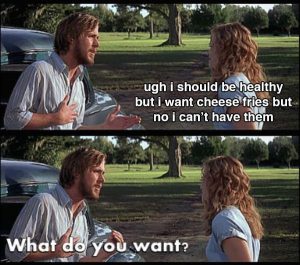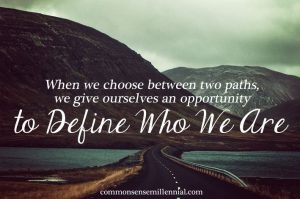Why label your decision ‘good’ or ‘bad’?
It’s a shocking fact but according to multiple sources, on an average an adult makes about 35,000 decisions in a day. Young children make about 3,000 decisions each day. The decisions diverge from which dress to wear, what to eat for lunch, what to cook, whether to go in for a haircut, whether to go for voting, whether to continue sleeping, whether to say hello to someone on the road who is friendly or not so friendly etc, etc…. these are common decisions besides the serious issues on which we take decisions almost every moment in a day. However, there is no accuracy in each decision making of ours. For many of us decision making seems more of a challenge than it should be, for many of our decisions we rely on somebody for their opinions.
When we look back, I am sure, we feel there are so many decisions we made are not the correct decisions. Let’s take a simple example, your recent visit to restaurant for dinner will make you think whether your menu choice was right or not, was it the best decision? Could you have something new on the menu? Think of all those business decisions we need to make. They are more complex and more puzzling. It’s not that we don’t want to decide, or that we are intentionally being difficult about an issue. Sometimes, decision-making is just really, really challenging, even when it seems like it’s about something totally superfluous. We find loads of people who shy away from making decisions; it is an issue for many people. Let me tell you, it is a glaring fact that more and more people want shy away from making decisions than ever before.
Recently, a lot of research has focused on a certain mental limitation, which has to do with our ability to use a mental trait known as executive function. When we focus on a specific task for an extended period of time, mind gets confused about how to implement the task; it’s like if I wanted to eat a burger and I instead ate salad, I am flexing my executive function muscles. Both thought processes require conscious effort; one needs to resist the temptation to let his/her mind wander. However, that use of executive function, which is a talent we all rely on throughout the day draws upon a single resource of limited capacity in the brain. When this resource is exhausted by one activity, our mental capacity may be strictly hindered in another, seemingly unrelated activity. And this process of thinking and making decisions goes on and on.
The skill of good decision-making has become increasingly important. We have an abundance of choices, both with the simple things in life such as ordering from a menu, where to go for a haircut, which style of suit to stitch, which perfume brand to buy to the serious things in life such as choosing your career, health treatment, or whom to marry. When making a tough personal or professional decision, I think the best advice is ‘Be TRUE to yourself.
Before you know when to trust your gut, you have to know yourself well enough to understand where on the decision-making scale you fall. On one end of the spectrum, you have the highly intuitive people, and on the other are the intensely analytical people. It seems, Sam Walton used to take a lot of decisions based on his gut feelings: on one such occasion, Walton’s decision to hold Saturday morning all-employee meetings which led to a culture of rapid information and decision making, which in turn created one of the biggest companies in the world. Similarly, Jack Welch’s decision at General Electric (GE) to fully fund a first-in-class training center at Crotonville, led to the development of hundreds of great leaders who practiced the “GE Way”. Henry Ford was a quick decision maker – he is famously known for his decision making power. Henry Ford’s decision to double the wages of his workers enabled him to attract the talent he needed, and helped insure a class of worker who could afford the very products they were building.
Under the dynamic leadership of Indira Gandhi, India’s voice was heard with respect in various international organizations and forums. She took certain decisions keeping in view the prevalent circumstances that resulted in raising the stature of India at the international level. She had no articulated world vision but had observed her father identifying India’s national interest with independent decision-making in international affairs, economic development at home and the exclusion of India and its neighborhood in Southern Asia from either of superpower’s sphere of influence. Her decisions were pragmatic, her dealings with foreign leaders tough. The truth is under her leadership, India started progressing in many areas. Indira Gandhi was a quick decision maker.
Our emotions help us decide what’s important to us, they prompt us to take some action, they guide us toward an aspect of what needs to be exposed and what needs to be healed of self, they also guide us when we are out of balance so that we can bring back ourselves to center. Friends, each decision of ours need not be ‘correct’. In life’s journey, we go through the thick and thin, with each good or bad experience. Some choices may lead to more painful lessons than others, but that doesn’t mean we should not make decisions. I have seen people who flip a coin to make decisions as in ‘yes’ or ‘no,’ chits with ‘yes’, ‘no’ scribbled on them, seeing a soothsayer for his advice and some more weird things. Life involves some risks. Flip the coin and see where it leads you.
I believe, it’s better to trust our intuition because sometimes our intuition guides us toward those things we fear the most so that we can push past them and become stronger as a result. The next time you feel fear, embrace it, inspect it, and if guided to do so, move boldly toward it. Try it!
















































